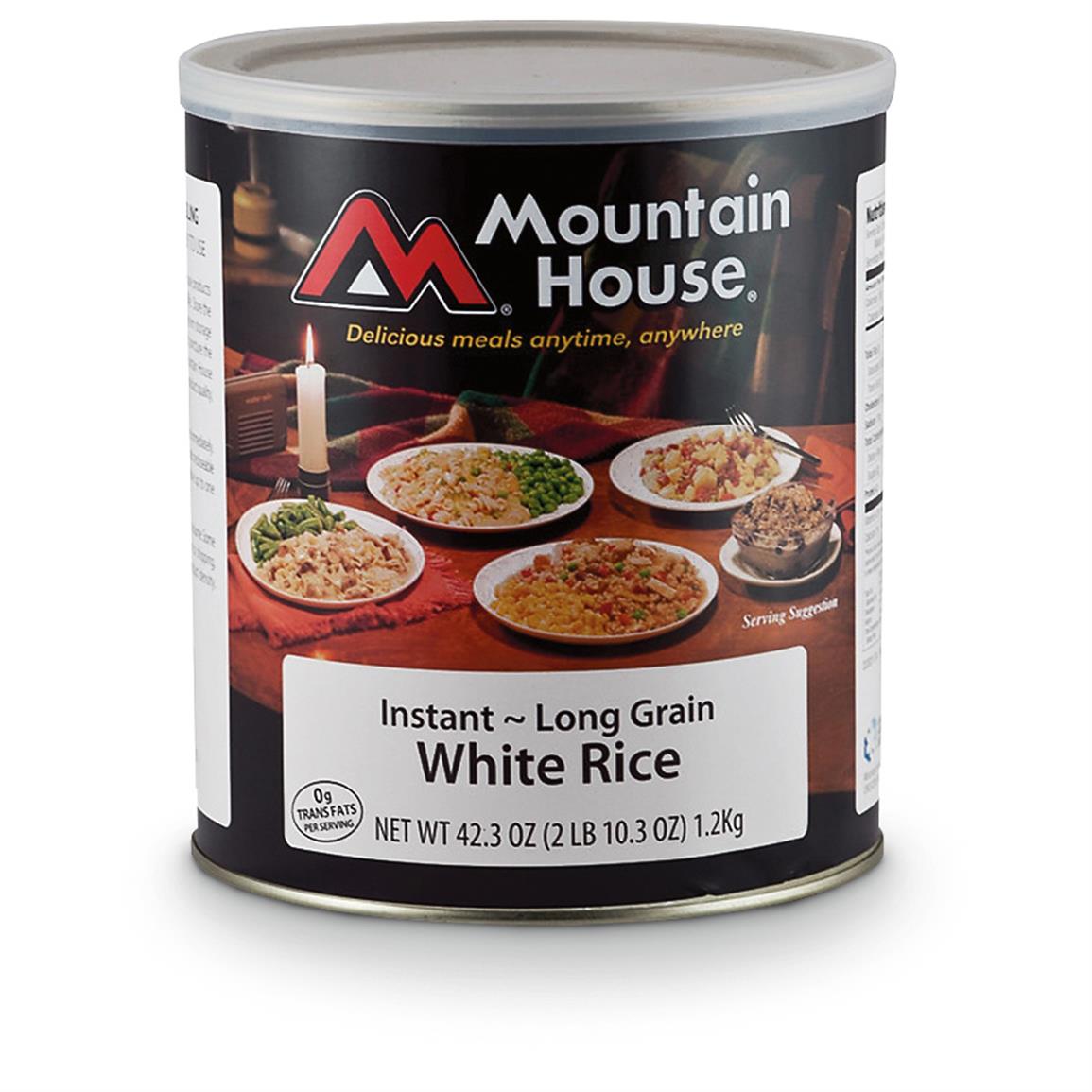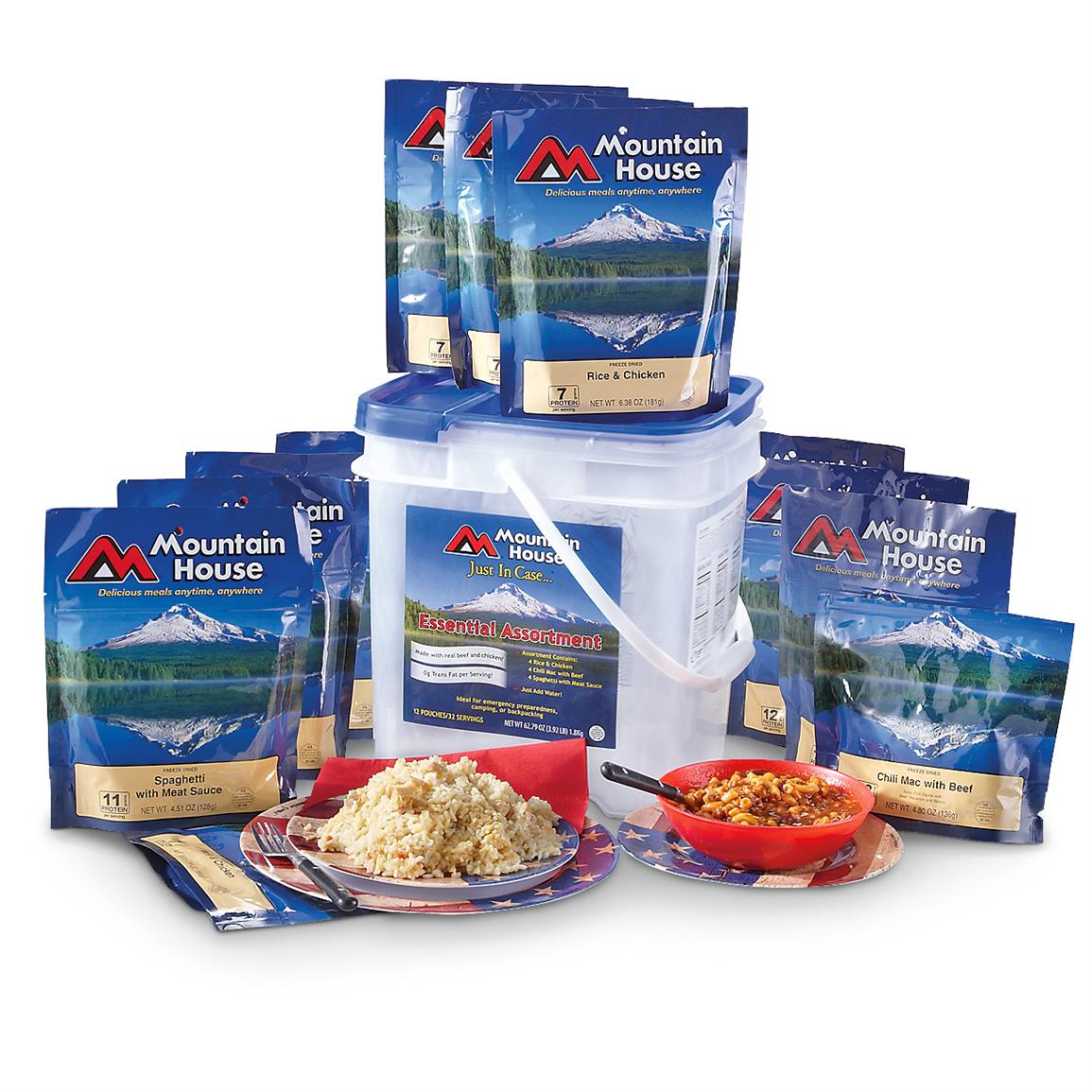Mountain home meals is an integral part of any backcountry journey, offering sustenance and nourishment in distant and difficult environments. This complete information will delve into the intricacies of getting ready, storing, and having fun with meals in a mountain home, empowering outside fanatics with the data and expertise to take advantage of their wilderness eating experiences.
From meal planning and water administration to meals security and cooking strategies, this information covers all facets of mountain home meals. Whether or not you are a seasoned backpacker or embarking in your first in a single day journey, this information will present invaluable insights and sensible recommendation to make sure your culinary adventures within the wilderness are each satisfying and protected.
Meals Preparation
Making ready meals in a mountain home presents distinctive challenges attributable to restricted area and sources. To make sure a profitable culinary expertise, it’s important to have the correct gear and data.
Important Kitchen Tools
The next objects are essential for a well-equipped mountain home kitchen:
- Small, light-weight range and gasoline
- Pots and pans with lids
- Utensils (spatula, spoon, fork, knife)
- Can opener
- Water bottle or container
- Dish cleaning soap and sponge
Cooking Challenges and Options
Cooking in a mountain home might be difficult attributable to:
- Restricted area: Select compact, foldable, and multi-purpose gear.
- Lack of refrigeration: Retailer meals correctly to stop spoilage.
- Excessive altitude: Regulate cooking occasions and temperatures accordingly.
Meals Storage and Preservation
Correct meals storage is crucial to keep up freshness and stop foodborne sicknesses:
- Retailer non-perishable meals in hermetic containers.
- Use a cooler with ice packs to maintain perishable meals chilly.
- Eliminate rubbish correctly to keep away from attracting pests.
Meal Planning
Planning meals for a week-long keep in a mountain home requires cautious consideration of dietary wants and storage limitations. By designing a well-thought-out meal plan, you’ll be able to guarantee that you’ve a wide range of nutritious meals to gasoline your adventures whereas minimizing waste and maximizing area.
Pattern Meal Plan
The next desk gives a pattern meal plan for a week-long keep in a mountain home, contemplating dietary wants and storage limitations:
| Day | Breakfast | Lunch | Dinner | Snacks |
|---|---|---|---|---|
| 1 | Oatmeal with nuts and dried fruit | Sandwich with tuna, crackers, and apple | Pasta with marinara sauce and greens | Path combine, granola bar |
| 2 | Yogurt with berries and granola | Leftover pasta from dinner | Grilled hen with rice and broccoli | Fruit, cheese and crackers |
| 3 | Eggs with whole-wheat toast | Soup and crackers | Tacos with floor beef, cheese, and salsa | Popcorn, jerky |
| 4 | Pancakes with syrup | Sandwich with peanut butter and jelly | Burgers with candy potato fries | Fruit, path combine |
| 5 | French toast with fruit compote | Leftover burgers from dinner | Spaghetti with meatballs | Nuts, dried fruit |
| 6 | Waffles with whipped cream | Grilled cheese sandwiches | Pizza with whole-wheat crust and greens | Crackers, cheese |
| 7 | Breakfast burritos with eggs, cheese, and salsa | Leftover pizza from dinner | Shepherd’s pie with mashed potatoes | Path combine, granola bar |
Packing and Storing Meals
To pack and retailer meals effectively for a week-long keep in a mountain home, observe the following pointers:
- Select non-perishable meals that may stand up to temperature fluctuations.
- Use hermetic containers to maintain meals recent and stop spills.
- Pack meals which are straightforward to organize and prepare dinner, resembling prompt oatmeal, soup mixes, and pasta.
- Contemplate bringing a small cooler for perishable objects like cheese, milk, and yogurt.
- Retailer meals in a cool, dry place, resembling a pantry or cabinet.
Water Administration
Staying hydrated is essential in a mountain home, the place strenuous actions and altitude can result in dehydration. Numerous water sources and purification strategies can be found to make sure a protected and satisfactory water provide.
Water Sources
- Pure Water Sources:Streams, lakes, and comes can present water, however have to be purified earlier than consumption.
- Rainwater:Gathering rainwater is feasible throughout precipitation, but it surely requires a clear container and purification.
- Snowmelt:Melting snow is usually a supply of water, but it surely have to be purified to take away impurities.
Water Purification Strategies
- Boiling:Boiling water for a minimum of 1 minute at a rolling boil kills most micro organism and viruses.
- Chemical Therapy:Water purification tablets or drops include chemical substances that kill microorganisms.
- Filtration:Water filters take away particles and microorganisms from water.
- UV Therapy:Ultraviolet (UV) mild can disinfect water by killing microorganisms.
Water Storage and Assortment
- Water Containers:Use clear, leak-proof containers for water storage.
- Assortment Strategies:Accumulate water from dependable sources utilizing a clear container or water filter.
- Water Therapy:Deal with water utilizing the suitable purification technique earlier than consumption.
Dangers of Dehydration
- Fatigue and Weak spot:Dehydration may cause tiredness and lowered bodily efficiency.
- Complications and Dizziness:Lack of water can result in complications and dizziness.
- Heatstroke:Extreme dehydration may cause heatstroke, a life-threatening situation.
Stopping Dehydration
- Drink Repeatedly:Drink water constantly all through the day, even when not thirsty.
- Monitor Urine Coloration:Clear or light-colored urine signifies satisfactory hydration.
- Electrolyte Supplementation:Electrolyte drinks or tablets may also help replenish misplaced electrolytes throughout strenuous actions.
Meals Storage

Correct meals storage is essential for preserving the standard and lengthening the shelf lifetime of your meals in a mountain home. Numerous strategies can be found to make sure your meals stays recent and protected to devour.
Refrigeration
Refrigeration is an efficient method to decelerate the expansion of micro organism and lengthen the shelf lifetime of perishable meals. Mountain homes usually have fridges to retailer objects resembling dairy merchandise, meats, and recent produce. It’s important to keep up correct temperature settings and manage meals inside the fridge to optimize airflow and stop spoilage.
Freezing
Freezing is one other wonderful technique for long-term meals storage. It halts the expansion of micro organism and preserves meals for prolonged durations. Mountain homes might have freezers to retailer objects like frozen meals, meats, and greens. Correct packaging and labeling are essential to stop freezer burn and preserve meals high quality.
Canning
Canning entails sealing meals in hermetic containers and heating it to a excessive temperature to kill micro organism. This technique successfully preserves meals for prolonged durations with out refrigeration or freezing. Canned items might be saved in a cool, dry place within the mountain home.
Group and Packing
Correct group and packing are important for optimum meals storage. Use hermetic containers, resealable luggage, and labels to maintain meals recent and stop contamination. Arrange meals objects based mostly on their storage necessities and pack them accordingly to maximise area and decrease spoilage.
Meals Preservation Methods
Meals preservation strategies can additional lengthen the shelf lifetime of meals. Vacuum sealing removes air from meals packaging, stopping oxidation and spoilage. Dehydration removes moisture from meals, inhibiting bacterial development and lengthening its shelf life considerably.
Meals Security

Sustaining meals security in a mountain home is essential to stop foodborne sicknesses and make sure the well-being of people. Correct hygiene, temperature management, and meals dealing with practices are important on this atmosphere.
Foodborne sicknesses, resembling salmonella, E. coli, and norovirus, might be attributable to consuming contaminated meals. These sicknesses can result in extreme signs, together with nausea, vomiting, diarrhea, and belly ache. Stopping these sicknesses requires adherence to meals security pointers.
Hygiene
- Wash arms completely with cleaning soap and water earlier than dealing with meals.
- Clear and sanitize all surfaces that come into contact with meals, together with utensils, counter tops, and reducing boards.
- Keep away from cross-contamination by retaining uncooked and cooked meals separate.
Temperature Management
- Preserve perishable meals refrigerated or frozen to stop bacterial development.
- Cook dinner meals to the right inside temperature to kill dangerous micro organism.
- Use a meals thermometer to make sure meals is cooked completely.
Meals Dealing with Practices
- Retailer meals in hermetic containers to stop contamination and spoilage.
- Discard any meals that exhibits indicators of spoilage, resembling mould or off-odors.
- Comply with really helpful storage occasions for perishable meals.
By following these meals security pointers, people can decrease the chance of foodborne sicknesses and preserve a wholesome atmosphere in a mountain home.
Meal Preparation Methods: Mountain Home Meals

Cooking in a mountain home presents distinctive challenges, together with restricted area, sources, and cooking gear. Nonetheless, with the correct strategies and instruments, you’ll be able to put together scrumptious and nutritious meals whereas having fun with your mountain journey.
Fundamental Cooking Methods
Grilling, baking, and boiling are elementary cooking strategies that may be simply tailored to a mountain home setting.
- Grilling:Use a conveyable grill or campfire to prepare dinner meats, greens, and fruits. Grilling imparts a smoky taste and seals in juices, making it a terrific choice for hearty meals.
- Baking:Baking might be accomplished in a Dutch oven or a conveyable oven. It is preferrred for getting ready bread, pastries, and casseroles, offering a comforting and versatile choice for meals.
- Boiling:Boiling is an easy and environment friendly method to prepare dinner pasta, rice, greens, and soups. It requires minimal gear and is appropriate for each indoor and outside cooking.
Environment friendly Cooking, Mountain home meals
To prepare dinner effectively in a mountain home, plan your meals prematurely and make the most of the accessible sources correctly.
- Meal Planning:Plan meals that may be ready utilizing comparable elements and cooking strategies to reduce waste and save time.
- Useful resource Administration:Use gasoline effectively by cooking a number of dishes without delay or reusing cooking water for soups or sauces.
- House Optimization:Pack compact and light-weight cooking gear to maximise area in your mountain home.
Transportable Cooking Home equipment
Transportable cooking home equipment, resembling camp stoves and moveable ovens, can considerably improve your cooking capabilities in a mountain home.
- Camp Stoves:Camp stoves present a dependable warmth supply for cooking and boiling water. Select a range that’s fuel-efficient and straightforward to make use of.
- Transportable Ovens:Transportable ovens permit you to bake and roast meals, increasing your culinary choices within the wilderness.
FAQ Nook
Q: What are the important kitchen gear for a mountain home?
A: A primary set of cookware, together with pots, pans, and utensils, a range or campfire for cooking, and a water filtration system for purifying water.
Q: How can I decrease meals waste and maximize area when packing meals for a mountain home journey?
A: Plan meals fastidiously, pack meals in reusable containers, and use vacuum sealing or dehydration strategies to increase the shelf lifetime of perishable objects.
Q: What are the potential dangers of foodborne sicknesses in a mountain home atmosphere?
A: Improper meals dealing with, insufficient temperature management, and contaminated water sources can all result in foodborne sicknesses. It is essential to apply good hygiene and observe correct meals security pointers.

